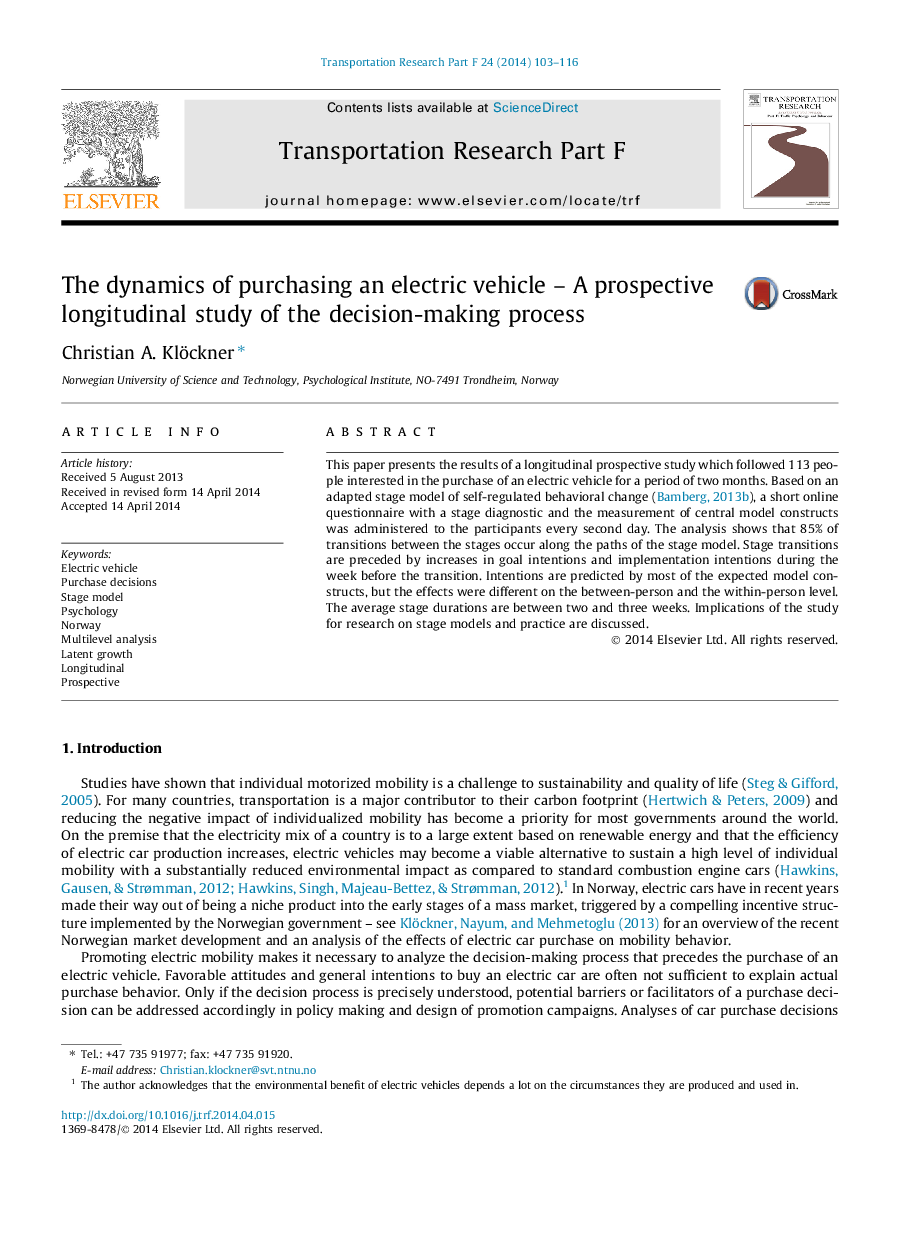| کد مقاله | کد نشریه | سال انتشار | مقاله انگلیسی | نسخه تمام متن |
|---|---|---|---|---|
| 897773 | 1472456 | 2014 | 14 صفحه PDF | دانلود رایگان |
• Stage transitions follow the predicted pattern to a very high degree.
• Half of the participants did not have any stage transition in two months.
• On average the participants stayed between two and three weeks in each stage.
• There is a high variation in stage duration between and within people.
• Stage transitions can be traced by increase in the respective intentions up to seven days prior.
This paper presents the results of a longitudinal prospective study which followed 113 people interested in the purchase of an electric vehicle for a period of two months. Based on an adapted stage model of self-regulated behavioral change (Bamberg, 2013b), a short online questionnaire with a stage diagnostic and the measurement of central model constructs was administered to the participants every second day. The analysis shows that 85% of transitions between the stages occur along the paths of the stage model. Stage transitions are preceded by increases in goal intentions and implementation intentions during the week before the transition. Intentions are predicted by most of the expected model constructs, but the effects were different on the between-person and the within-person level. The average stage durations are between two and three weeks. Implications of the study for research on stage models and practice are discussed.
Journal: Transportation Research Part F: Traffic Psychology and Behaviour - Volume 24, May 2014, Pages 103–116
